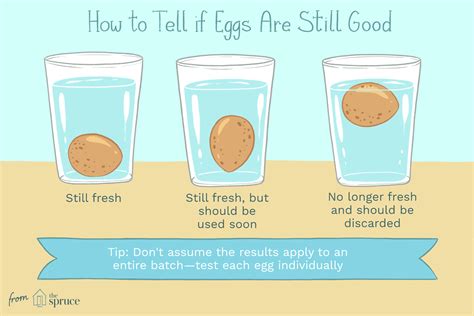How to Check if Eggs Are Good: Simple Tests and Storage Tips
Knowing how to tell if your eggs are still fresh is crucial for food safety and preventing unpleasant surprises in your kitchen. Nobody wants to crack an egg only to find it's gone bad! This guide will equip you with simple, reliable methods to check egg freshness, along with helpful storage tips to keep your eggs at their peak for longer.
The Float Test: A Quick and Easy Check
This classic method is surprisingly accurate. Simply place your egg in a bowl of cold water.
- Fresh Egg: A fresh egg will lie flat on its side at the bottom of the bowl.
- Older Egg: An egg that's a bit older will stand on one end, with its larger end slightly raised.
- Bad Egg: A bad egg will float to the surface. This indicates that the air pocket inside the egg has grown significantly, due to gas production by bacteria. Discard any egg that floats.
The Crack Test: A Closer Inspection
If the float test is inconclusive, or you're still unsure, the crack test provides a more definitive answer. Carefully crack the egg into a bowl.
- Fresh Egg: The yolk will stand tall and round, with a firm, clearly defined white.
- Older Egg: The yolk will be flatter and the white will be more spread out and runny. While still likely safe to eat, the quality will be diminished. Consider using these eggs for baking where the texture is less critical.
- Bad Egg: A bad egg will have a noticeably unpleasant odor, a watery, thin white, and a flat, discolored yolk. Do not consume a bad egg.
What Causes Eggs to Go Bad?
Eggs spoil due to bacterial growth. The porous shell allows bacteria to penetrate, gradually degrading the egg's quality. The longer an egg sits at room temperature, the faster this process occurs.
Prolonging Egg Freshness: Essential Storage Tips
Proper storage is crucial for maximizing egg shelf life.
- Refrigeration is Key: Always refrigerate your eggs immediately after purchasing them. Keep them in their original carton, or in a separate container, in the main part of your refrigerator – not in the door.
- Avoid Washing: Washing eggs before refrigerating removes their natural protective coating, increasing the risk of bacterial contamination. Wash eggs only immediately before use.
- Use By Dates: Pay attention to the "best by" or "sell by" dates printed on the carton. While eggs can often remain safe to eat for a few weeks past these dates, their quality will decline.
Beyond the Basics: Additional Checks
While the float and crack tests are highly reliable, you can also consider:
- Smell Test: A pungent sulfurous odor is a clear indication of spoilage. If the egg smells off, discard it.
- Visual Inspection: Check the shell for any cracks or discoloration, which can indicate bacterial contamination.
By following these simple checks and storage tips, you can confidently determine if your eggs are good and avoid any unpleasant culinary surprises. Remember, when in doubt, throw it out! Food safety is paramount.
